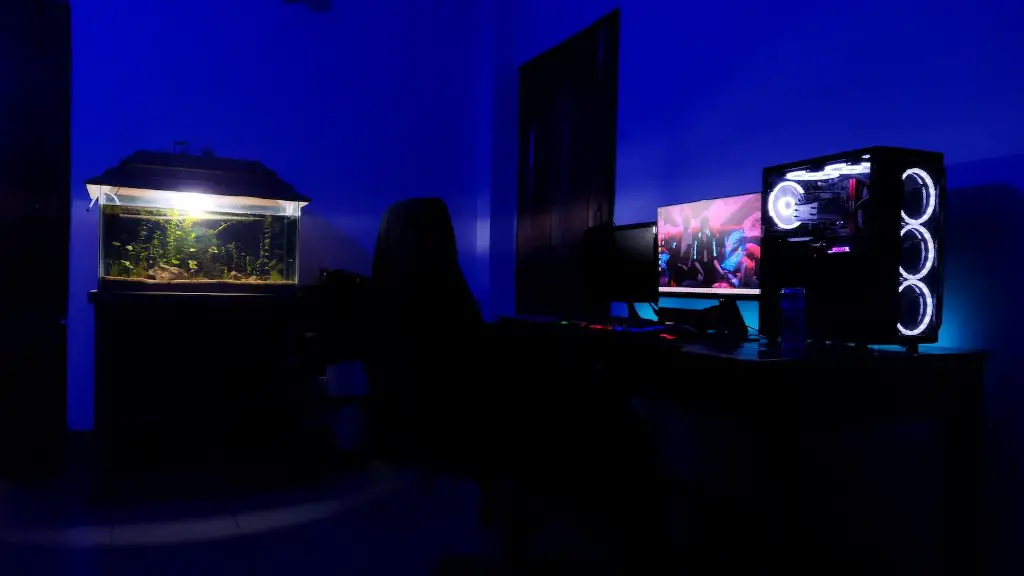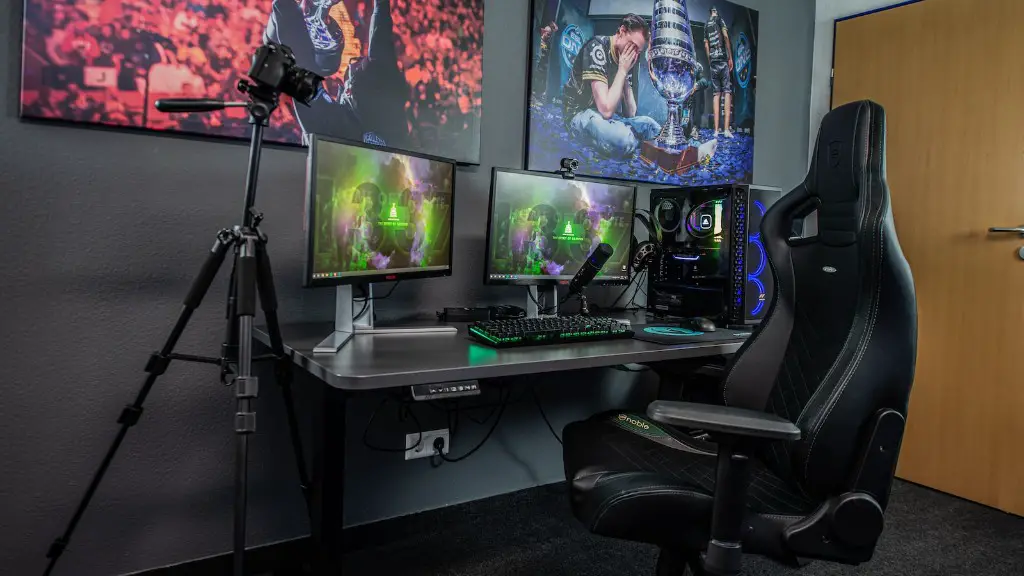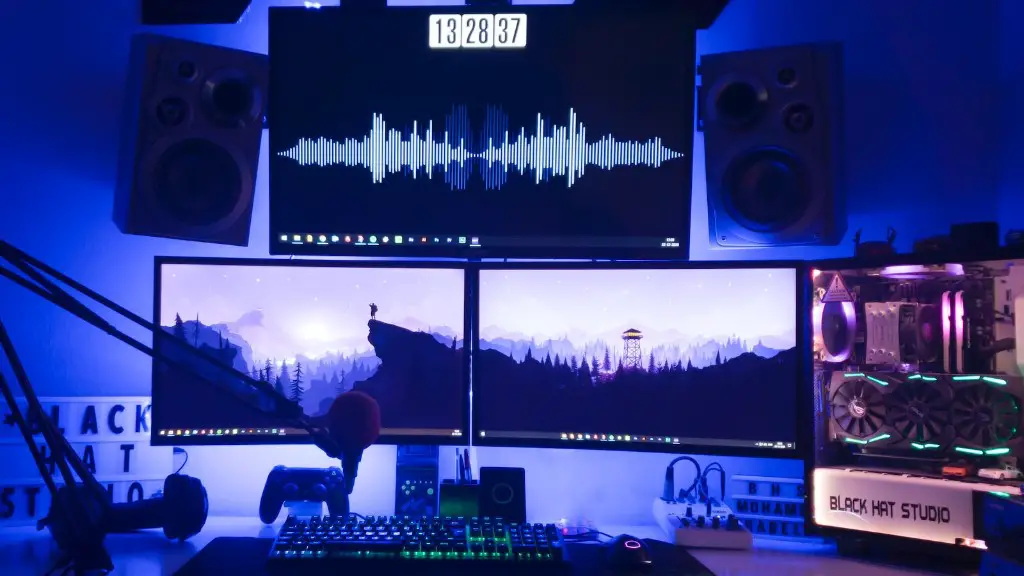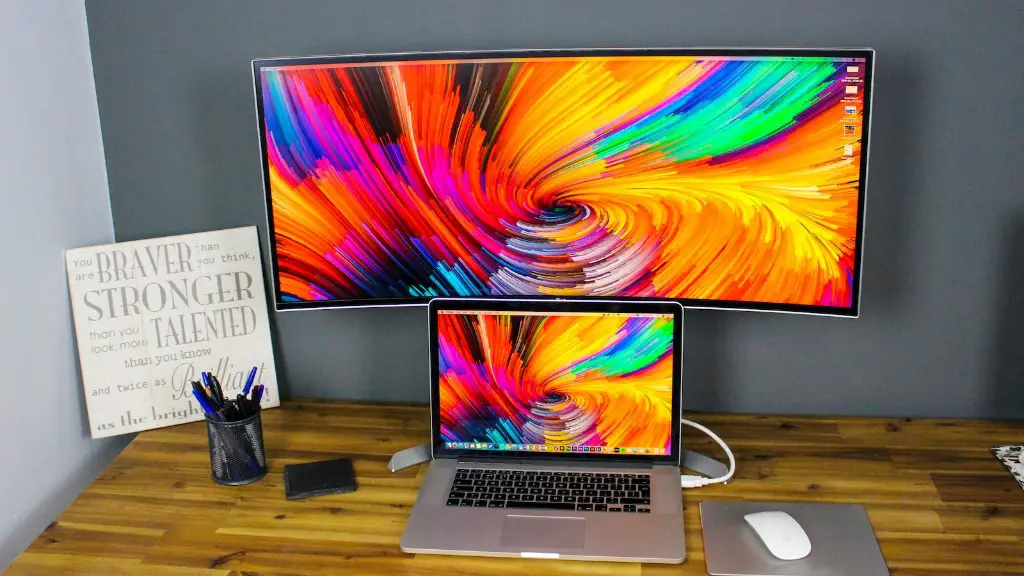Building a gaming PC can seem daunting and complex, but with the right pieces it can be achieved relatively easily. In this article we will discuss what components you need to build a gaming PC, and how each will affect your build.
At the core of any PC build is the central processing unit (CPU). This will be the “brains” of the build, and as such should be selected with care. Look for models with good single-threaded and multi-threaded performance, as well as models with a good Thermal Design Point (TDP) for heat control. The CPU should also be compatible with other parts you already have, and compatible with the motherboard you will be selecting.
The motherboard is the heart of the build, as it will determine what other parts you can and can’t use. Ensure that the motherboard you select is compatible with the model of the CPU you have chosen. The motherboard should also have plenty of connection types and ports, enough to provide expansion opportunities down the line. Ensure the form factor is compatible with the other components you will be using.
To handle the intense graphical load of modern games, you will need a graphics card (GPU). For gaming systems, it is wise to select a dedicated GPU. Look at benchmark scores and technical specifications to find one that meets your performance needs. It is also important to select a GPU that is compatible with the motherboard you will be using, as well as compatible with the power supply, so that all parts can work in unison.
Another important part of the build is your memory. You will need to select RAM that is compatible with the motherboard you will be using and that is of a suitable type. If you require higher speeds then be sure to select RAM with faster clock speeds, but also keep an eye on the CAS latency as that will affect how quickly the RAM can act. It is recommended to have at least 8GB of RAM for most gaming PCs.
Storage is one of the main components of a gaming PC. You will need to decide on whether you will be using an HDD or an SSD. HDDs are much larger and can hold more at a fraction of the cost, but they don’t have the same speed as an SSD. If you are looking for speed and reliability, then an SSD is the way to go. It is suggested to have at least 256 GB of storage for a gaming PC.
To power all of the components you will need a power supply. The size and wattage of the power supply should be determined by the other components you are installing. Make sure to take into account any overclocking you will be doing and use a power supply that is more than adequate for the job. Additionally, select a power supply with reliable reviews to be sure your build is safe.
Motherboard
The motherboard is the most important component for a gaming PC. It is the heart of the build and will determine how the rest of the system works. Make sure to select one that is compatible with the CPU you have chosen and will be able to support your peripherals and upgrade possibilities.
A good motherboard will also have plenty of technical features such as energy-saving technology, overclocking capabilities, extra ports, and built-in audio and video support. If you are looking for a good motherboard then focus on the chipset, form factor, number of slots and extra features.
When it comes to gaming, the chipset you select is important. Look for a chipset that can provide the required performance and compatibility with other parts. The form factor is important too as it determines the physical size of the motherboard, which affects the size and shape of your case. Make sure to select a motherboard that has the necessary ports and slots for the components you need.
Look for a motherboard with features such as overclocking support, Crossfire and SLI for better gaming performance. In terms of slots, make sure to look for models with PCI Express 3.0, USB 3.0 and other necessary slots. If you are looking to save energy then look for a motherboard with energy saving features like power saving modes and eco features.
Finally, make sure that the motherboard you select is compatible with the CPU, RAM and other components you will be using. Ensure that all the slots are supported in terms of width, length and available connections.
Graphics Card
A good graphics card is one of the main components of any gaming system. It will be responsible for providing high-end graphics, and as such should be selected with great care. Look for one that has a good benchmark performance, or in simpler terms one that can handle the most demanding games.
The type of GPU is also important. For gaming, you will be looking for a dedicated graphics card as that will provide the best graphics performance. It is important to select one that is compatible with the motherboard and power supply, as those will affect the overall performance.
When selecting the graphics card, look for one that is suitable for the resolutions and refresh rate you will be using. Also keep an eye on the physical size, as that will help you with the overall layout of the system. Additionally, check to see if the cooling solution is suitable or if you need to purchase an aftermarket cooler.
Make sure to select the appropriate memory, such as GDDR5 or GDDR6, to get the most out of the card. Variable refresh rate technology like G-Sync and FreeSync should also be considered if you are planning to use multiple monitors. Finally, look for a card from a reliable manufacturer with a good track record.
Power Supply
A power supply is needed to power all the other components in the system. Select one that is more than powerful enough for the build you are creating, but also one that is efficient. Look for one that can provide more than the required wattage, so that it can cater for future upgrades, as well as one with a good 80+ rating.
Check the cables and connectors to ensure they are compatible with the other components you have. Additionally, look for one with safety features such as current, voltage and temperature protection, which will help keep the system safe from any power surges and fluctuations.
It is important to select a power supply with enough connectors, so that it will be able to power all of your components. Look at the technical specifications of the power supply to make sure it will be able to provide ample power when needed. Finally, make sure the form factor is compatible with the other components, as some power supplies are larger than others.
Ram
RAM is an important component for any gaming PC build. It is responsible for providing temporary storage for the instructions and data that are needed for the applications and games to run. Look for RAM that is compatible with the motherboard and other components you will be using.
The type of RAM you select will also affect the overall performance of the system. Make sure to select one that is of sufficient speed and CAS latency, as this will increase the performance of the system. It is recommended to have at least 8GB of RAM for most gaming PCs, as this will give you enough performance when playing modern titles.
When selecting RAM, make sure to check the technical specifications and benchmark scores. Also check the warranty period, as this will make sure that if anything were to go wrong, you could get a replacement. Finally, make sure that the RAM is compatible with the other components. Most motherboards and CPUs will have details on their websites about the supported modules.
Storage
Storage is one of the main components of a gaming PC. You will need to decide between an HDD or an SSD, both of which have their advantages and disadvantages. HDDs are much larger and can hold more at a fraction of the cost, but they don’t have the same speed as an SSD. If you are looking for speed and reliability, as well as energy efficiency, then an SSD is the way to go.
For gaming, it is suggested to have at least 256GB of storage. This will provide ample storage for all your games and applications, as well as provide plenty of space for storing files such as music and videos. If you need large amounts of storage then you can consider an HDD, but for speed and reliability, an SSD is strongly suggested.
When selecting the storage device, make sure to check the technical specifications and benchmark scores. Also check the warranty period, as this will make sure that if anything were to go wrong, you could get a replacement. Additionally, make sure the storage device is compatible with the motherboard, CPU and other components.
CPU
The CPU is the “brains” of the PC build and should be selected with care. Look for models with good single-threaded and multi-threaded performance, as well as models with a good Thermal Design Point (TDP) for heat control. Consider the type of games you will be playing and choose a CPU that is suitable for that purpose.
The CPU should also be compatible with other parts you already have, and compatible with the motherboard you will be selecting. Some motherboards and CPUs come with special technologies such as Hyper-Threading, multi-core support, or processor cores that can boost performance, so make sure to check for these features.
When selecting a CPU, make sure to check the clock speeds and the number of cores. The clock speed will affect how quickly the processor can execute instructions, while the number of cores will dictate how many tasks can be completed at once. If you are looking for a processor that can handle more than basic gaming, then consider an overclockable model.
Finally, make sure to select a CPU that is supported by the other components you will be using. Check the socket type and check to see if the CPU is compatible with the motherboard, RAM, and other components.




